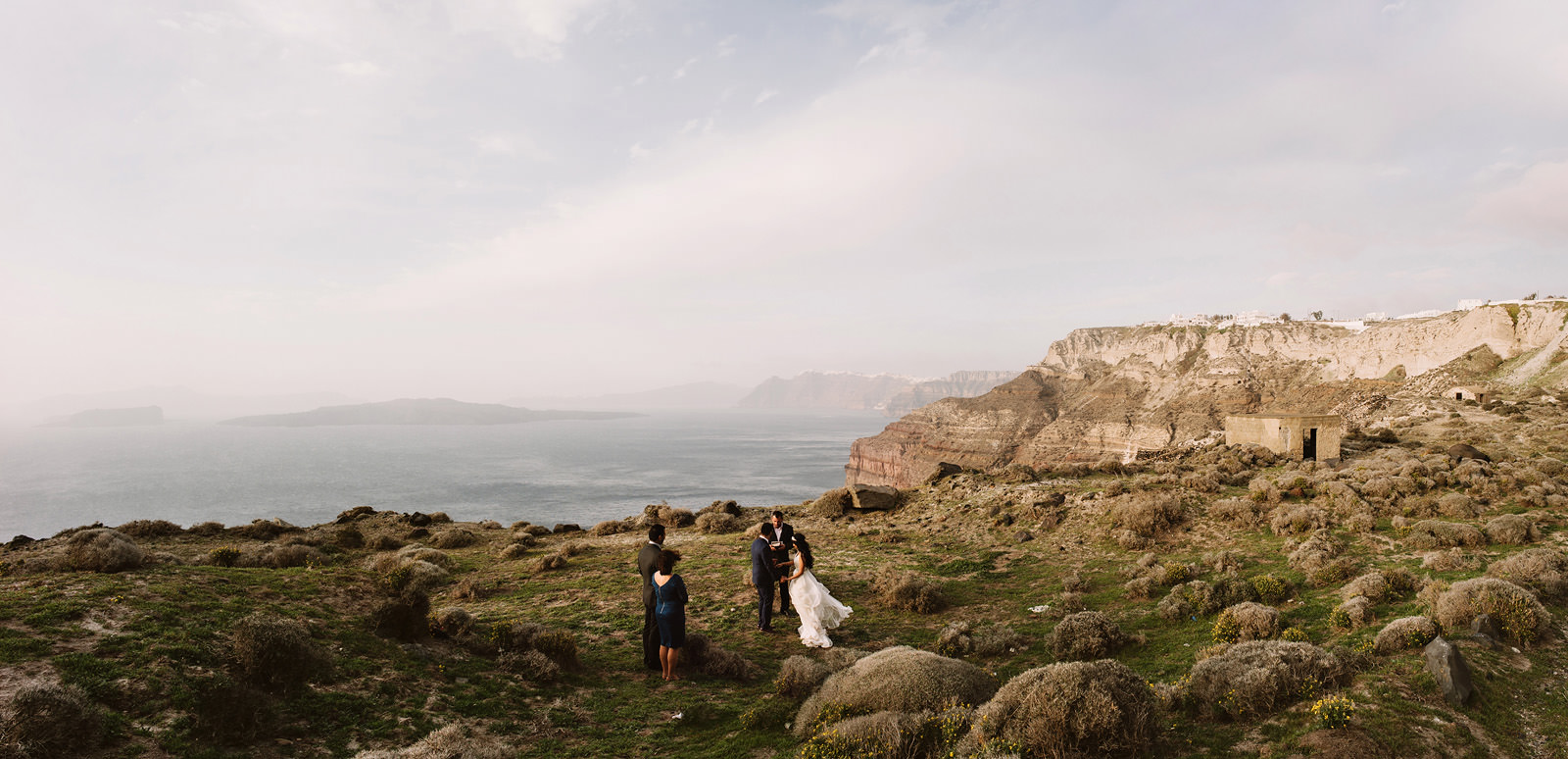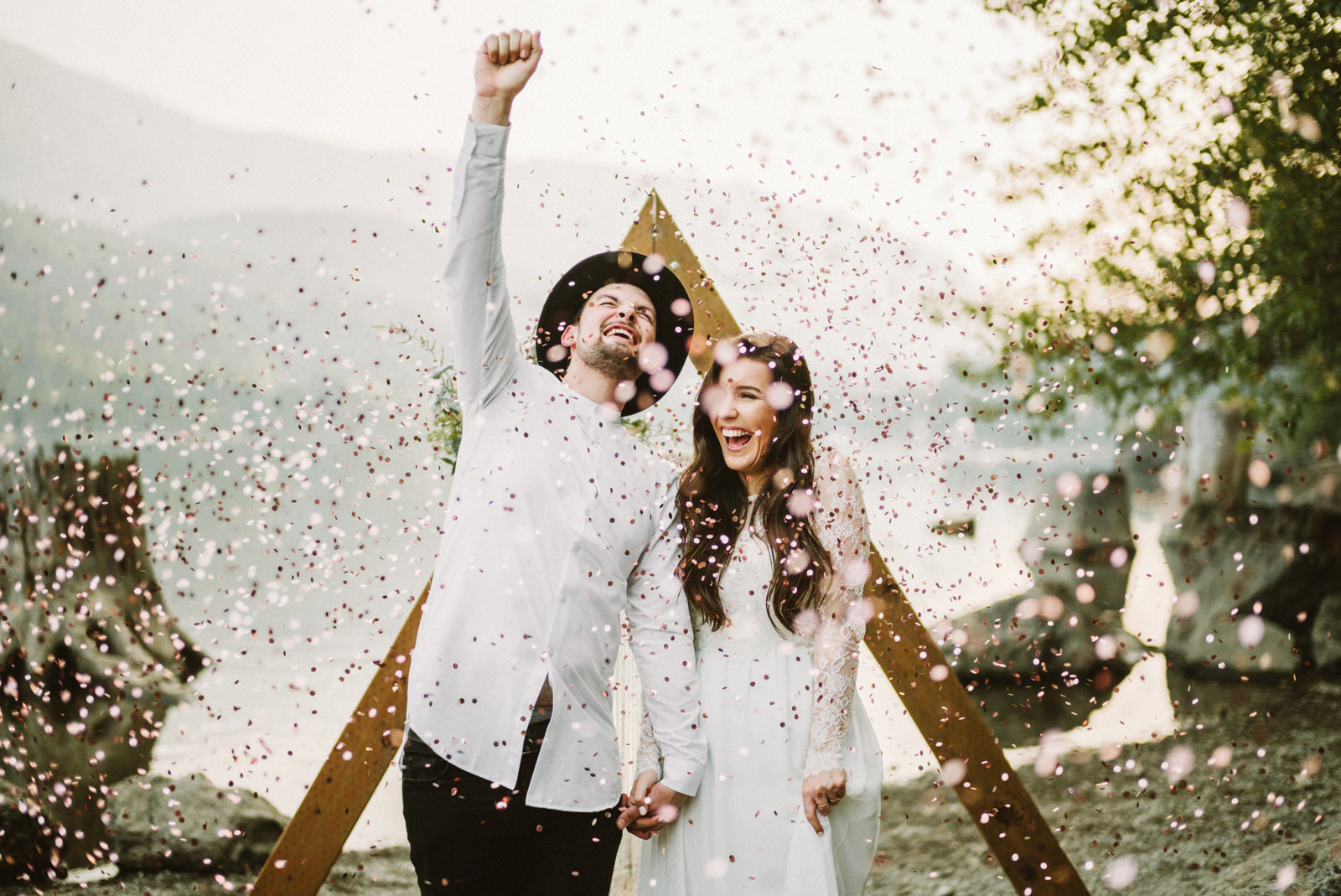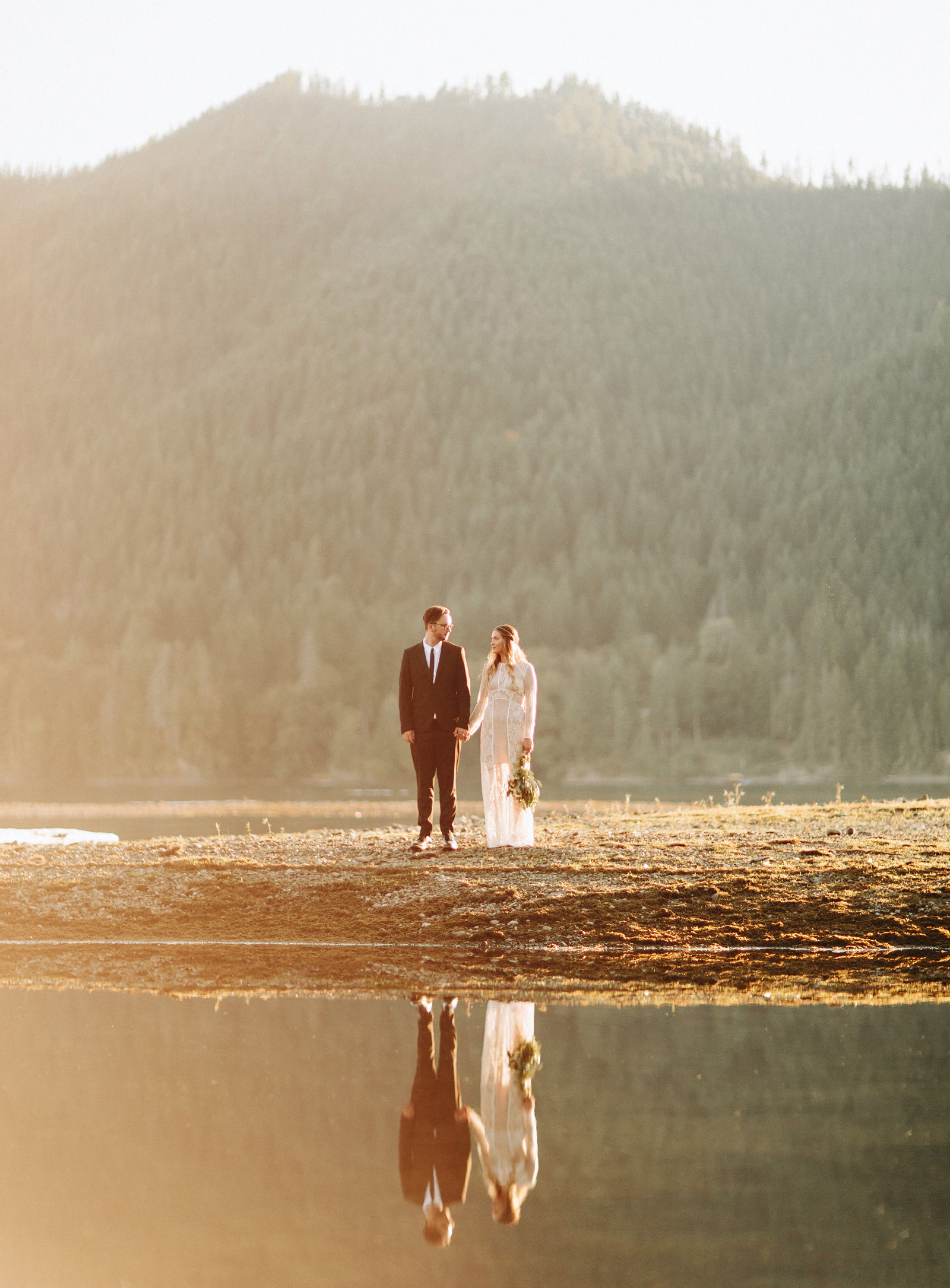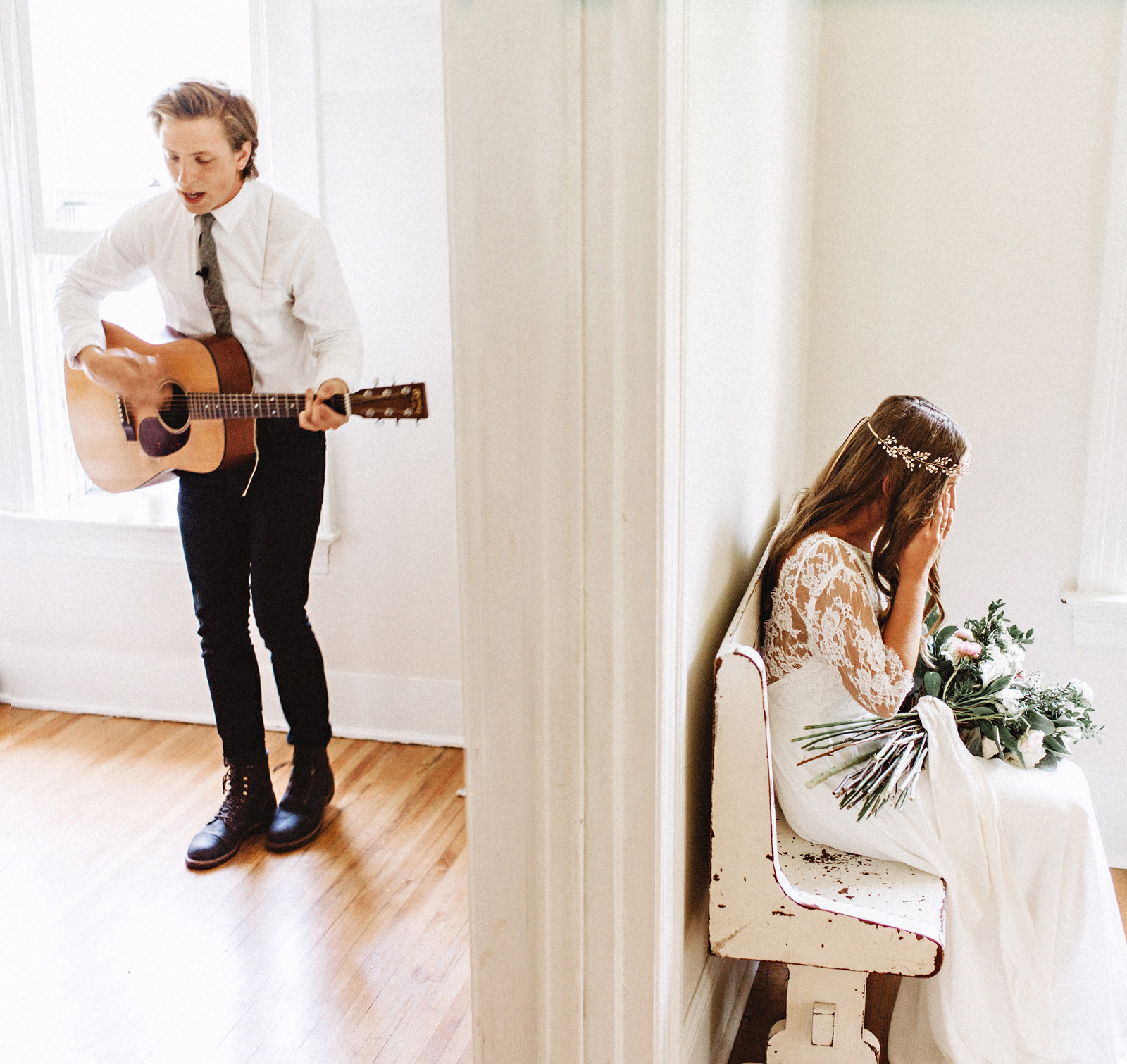How To Find The Best Tools For Your Photography Business
Education
By Narrative Team
Wedding and elopement photographer Benj Haisch is the trailblazer of adventure elopements. An accidental trendsetter, he doesn’t believe in chasing trends for long-term success. Instead, he commits to his style of capturing candid images that resonate with couples for a lifetime while indulging his love of the Pacific Northwest landscape. He talks about how adventure elopements became a thing, how he has created a consistent, sustainable business of 17 years, prioritizing mental health, and balancing it all with a family.
KW: What are you working on right now?
BH: I started a YouTube channel a couple years ago. I've been doing camera reviews and all that kind of nerdy stuff. I picked up cycling earlier this year and it's been really good for my mental and physical health. I can't just drive up to the mountains for a full day because I have to pick up my kids from school. So it's been a really good way for me to connect with the outdoors when it's not pouring down rain.

KW: Prior to the kids, were you just going out and hiking? Obviously, you were location scouting, but was that something you used to do?
BH: Before I had kids, a buddy of mine and I would go hiking once a week. Ten years ago, posting cool landscape things on Instagram was easy on my phone. I think that's why I succeeded in the Instagram world early on, because I could just naturally adapt what I was already doing to that platform. Anytime I want to go in a certain direction with editing or style, I ask myself, what would be the coolest way to do that? Let's find the difference between where I'm currently at and what that thing might be. And then try to find a middle ground so that I'm never swaying too far from one direction or the other. It's allowed me to run a more sustainable business and brand over 16 years. I try to think of the way that I photograph things and the way I run my business as ‘how is this going to work 5, 10, 15 years down the road?’ I don't want to stray too far to where someone looks at my work in five or ten years and can tell when that photo was taken.
KW: What's been the proudest moment of your career?
BH: I did a podcast right after my son was born, and they asked me about my five- and ten-year goals. At that point, I was in this new dad phase, and I said, if I can coach my kid's baseball team in five years, that will be my goal. Last year, I coached his baseball team, and it was because I was successful enough to be able to take the time to not book as many weddings and turn down shoots that would be at the same time as his practices. Every time - it sounds stupid - but every time I pay my taxes or make a car payment or we pay our mortgage, I just think, man, this is so cool that I get to do someone's hobby for a living. Since college, I've been doing photography as a job. It's just wild to me that it still exists in that way, you know?

KW: What's been one of your business decisions that wasn't so great?
BH: Early on, no one told me how taxes worked, so I wasn't ready to do my taxes. So I didn't pay them for a couple of years. I didn't realize there were going to be giant penalties. Now, I keep good books and do everything on time. But it's just one of those dumb, young things.
I allocate the fact that I will make one or two dumb mistakes a year. Any time that I run into an issue where a client is being difficult, I think, where did I fail in communicating that correctly? What did I do to make the expectation for them something that I did not anticipate happening? How can I make this learning experience for me? And then how can I reset up my business or contract or strategies or communications to make that thing never happen again? I have to think how I could have done that differently to result in a different outcome. That's one of the ways of not being bitter at a client.
KW: As you've continued to make such a successful business, what would have been your best business decision?
BH: Leaning into understanding what I would be better at naturally and finding the types of people that appreciated that kind of stuff. A big break for me was when I started to do adventure elopement ten years ago. It made things fit better to move from doing ballroom and church weddings to something that felt more familiar and natural for me. And luckily, at the time that's what was popular on social media.
Clients love specifically how I capture those interactions between people, or there's something inherent about the way that I work with people that is the drawing force. And that's what is most important to me. I've come away more fulfilled from weddings in a ballroom that wouldn't be something you would think of as a Benj-type wedding than other weddings I've done in amazing places. I feel like 99% of the time, my clients and I have a great connection. How I photograph things is so much more important than the style or the cameras and lens choices and locations.
KW: Do you feel the effects of your business decisions on the industry? Your Rattlesnake Ridge shoot with Laura Lawson Visconti was the start of that style of elopement. Do you feel that what you did changed things?
BH: Yeah, it was the perfect storm of everything. That was over 10 years ago now. Their officiant was a friend of mine so I kind of knew them. My other friend, who'd never done weddings before, was their videographer. I remember hearing what they wanted to do through my friend and said, Hey, put me in contact. I don't care what you pay me.
KW: Had you done a shoot like that prior to that?
BH: No. It just wasn't a thing. I had Googled ‘rattlesnake ridge wedding photos’ and there was literally nothing. And now you could probably Google that and there'd be thousands of results, which is crazy. It was like the biggest thing on Pinterest that year, outside of celebrity things, it was the wedding of the year on Green Wedding Shoes, which was, to me at the time, the coolest, trendiest wedding blog. Laura had 150,000 followers on Instagram in 2013. Nick, the groom, had a bronze medal from the X Games for snowboarding so he had his own following. So it was just the biggest perfect storm.

KW: It's ironic that you don't follow any trends, yet you accidentally started one of the bigger trends.
BH: A lot of people would assume that as soon as I caught that bandwagon, I would only do that because I would try to ride that wave. I love doing them; they're fun but it was another one of those cool, trendy things. I want to be somewhere in the middle so that I can keep this thing going for the next 20 years or whatever. I still love doing the whole wedding thing as well. That's part of what helped me be sustainable in all those realms.
When I'm trying to help a client go through their timeline, I ask, what do you want to accomplish today? What are things you want out of this day? We can modify things because ultimately my job is to document how your day went. And the only way I can make good work is if you are having a good time, and I want to bring you back to those moments through my work. If that only gives me 10 or 15 minutes of portrait time with the two of you, that's fine because you guys are going to be having such a good time that those things are going to be way more natural, and you're going to end up with great photos.
KW: What camera are you shooting with most these days? Not just for weddings, but what are you carrying around mostly?
BH: I was photographing with the GFX 102 last week. The camera I most recently bought was the Sony A7CR, which is their high megapixel camera, but really small. The cool thing about that is I can put a tiny lens on it and photograph my kids or I can put a big lens on it and use it for other stuff. But I have the X100V that I'll carry around if I want to think about nothing, or M6 if I want to shoot film and think a little more.
KW: What's your problem? What are you working on right now?
BH: The hardest thing for me right now is balancing all the different things that are going on in my life. Trying to run a YouTube channel and have a Patreon and find a time to release new presets and have wedding work that I still need to finish. I have two young kids and a wife who has her own motivations and goals. It's prioritizing time management. How do I best manage being a photographer, an educator, a YouTuber and a husband and a dad, and also find time for myself? I put myself last, which is what I've always done. My business has always been sustainable, but my mental and physical well-being hasn't been sustainable in those same ways. A lot of that is prioritizing my time and relationships with the people I love most.

KW: Are there any tangible approaches you've taken to that?
BH: The biggest thing for me has been taking care of my own mental health. I found out a few years ago that I had clinical depression. Through that, I found out that I had ADHD, which I wish I had known before. Taking care of myself in those ways first has allowed me to manage all those other things much better. Sometimes I'll go cycling in the middle of the day, even if I have a deadline, because I know that mentally I will be more productive afterwards.
KW: You mentioned you're trying to put on new presets and recording some other things. What do you have coming up?
BH: I have a YouTube channel where I talk about gear, new lenses and cameras, but also some things that I find interesting with software. I also do a lot of videos on a Patreon channel where I talk a lot more about business. I do a lot of behind-the-scenes stuff as well. I often wear a GoPro and film an entire wedding ceremony and put that up there. It's always interesting to see how people go about doing something.
KW: Thanks so much for your time today. It’s great to hear how someone else operates, and you've had such a sustainable business for so long. It’s inspirational.
Check out Benj’s incredible body of work on his website and Instagram (@benjhaisch).
This interview has been edited and condensed. Check out “The Photographer’s Problem: A Narrative Podcast” streaming now on YouTube or Spotify for the full, unedited interview and more inspiring stories with an immersive look into the intricate world of photography.